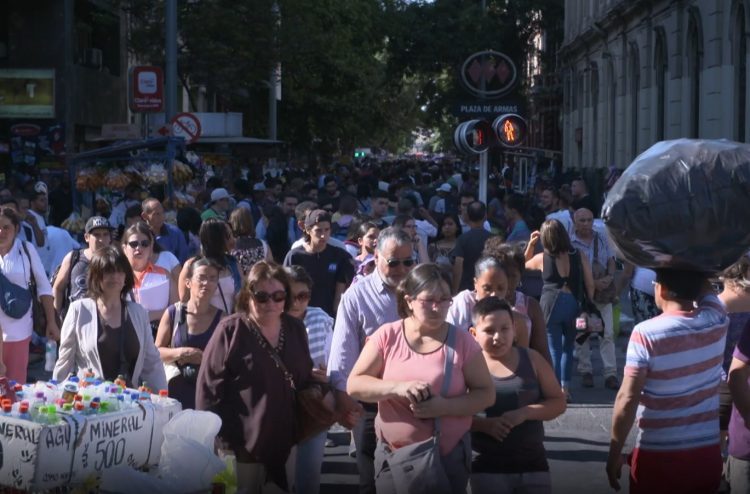The second roundtable discussion of the webinar cycle "Chile-European Union Dialogues" on Social Welfare Models, took place on 7 and 9 April. This initiative is organised by the European Union Delegation in Chile, the Chilean Chamber of Deputies, the Library of the National Congress and AGCID, with support from the EUROsociAL+ Programme.

Chilean deputies; European and Chilean experts took part in both sessions of the second roundtable discussion on “Social Welfare Models”, which focused on the welfare state in European constitutions in the face of the challenges regarding the universal guarantee of citizen protection and mechanisms for the exercise of social rights, including international treaties, in the light of European and Latin American experience.
At the meeting, participants addressed central issues around of the “Chile-European Union Dialogues” central to the new constitution, such as the crisis and reorganisation of social welfare systems; the technological revolution, globalisation, climate change and population ageing; universal basic income and intergenerational equity in social welfare policies, especially in the field of pension and health systems.
They also addressed the reorganisation of social welfare systems to face new risks and demands within the framework of global change trends, which affect universal basic income and assistance in labour transitions, among other measures.
During the sessions, there was an explanation of the European Pillar, which establishes 20 basic rights for all European citizens and the need to add social investment to traditional protection policies (especially passive ones), aimed at anticipating rather than repairing damage, to build ex ante capacities, rather than making corrections later on. These policies must be organised according to the different life cycle phases: early childhood services, education, training and support for “transitions” (school-work, employment-employment; etc.); permanent training at work; etc.
There were discussions on the character of the current Chilean social model and the way in which a new constitution could improve conditions to create a welfare state and social security systems. In light of different constitutions in the region, it was noted that there is no strict cause-effect relationship between the extent of constitutional rights and the development of welfare systems. According to the participants, this does not mean that Chile should not prepare a solid platform for social rights in its constitution, giving long-term support and legitimacy to its social protection system.
Gosta Esping-Andersen participated in Roundtable Discussion II on behalf of the European Union. He is who is a professor at the Bocconi University of Milan and professor emeritus at the University of Barcelona Pompeu Fabra; Annamaria Poggi a professor of public law at the University of Turin. Also, there was Maurizio Ferrera, who addressed “Theories and Policies of the Social State” professor and “Comparative Welfare Models” professor at the University of Milan; and the economist and social scientist at the Ecole Normale Supérieure in Paris and former French minister of social affairs, health and women’s rights (2012-2017), Marisol Touraine.
The Chilean speakers at the Roundtable Discussion were Deputy Sofía Cid; social policy expert and former planning minister Clarisa Hardy; University of Chile lawyer and professor of constitutional law Enrique Navarro; lawyer from the Catholic University of Chile and holder of the chair in “Global Trends in Constitutionalism” at the University of Utrech (Netherlands) Dr Javier Couso; Administrative Law professor, founder and associate of the Chilean Constitutional Law Association Sandra Ponce de León; and doctor of law and lecturer in Constitutional Law at the University of Los Andes, Marcela Peredo.
Chile’s constitutional reform is one of the most innovative in recent times. The Constitutional Convention has a balanced composition and incorporates the participation of indigenous peoples, making this a groundbreaking project in the area of comparative constitutional law.
Looking beyond one’s own borders is a valuable tool to nurture reflection., The raison d’être of the “Chile-European Union” Dialogues initiative is to create opportunities to share knowledge to nourish the debate on aspects analysed for the new constitution, until the enactment of the Constitutional Convention -in a move towards more sustainable, equitable and inclusive development. Since January 2021, a first Roundtable discussion on “Improving Democracy: Strengthening Citizenship” and a session on “Organisational Models for Conventions/Constituent Assemblies” have been held.
The Roundtable II sessions are available here and for more information on the views of each expert and the briefings in each session, see here.
The next “Chile-European Union Dialogues” roundtable discussions will address topics including: Forms of State and Systems of Government (27 and 29 April); Gender and Constitution (11 and 13 May); Development and Sustainability; (25 and 27 May), and Fundamental Freedoms (8, 10 and 15 June).



